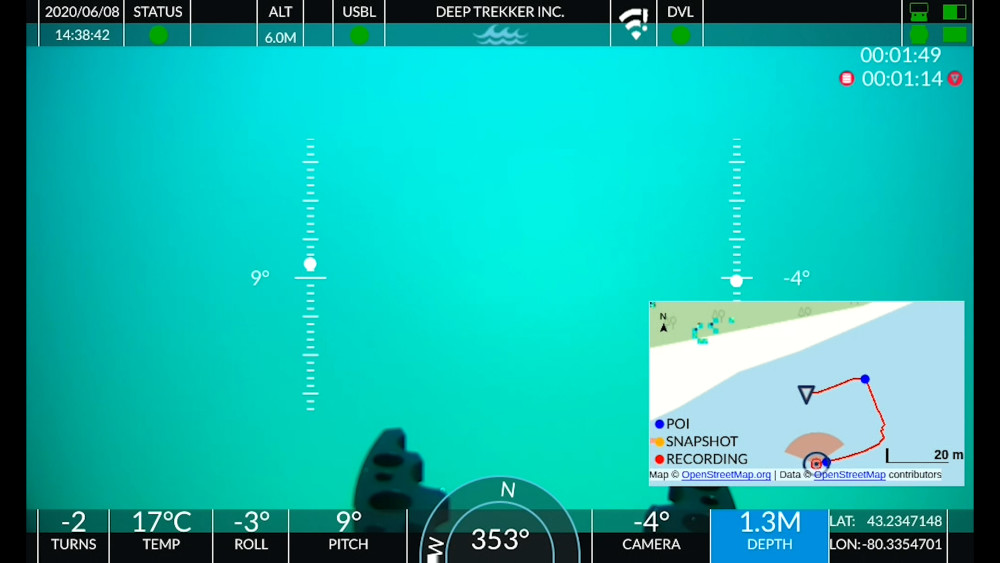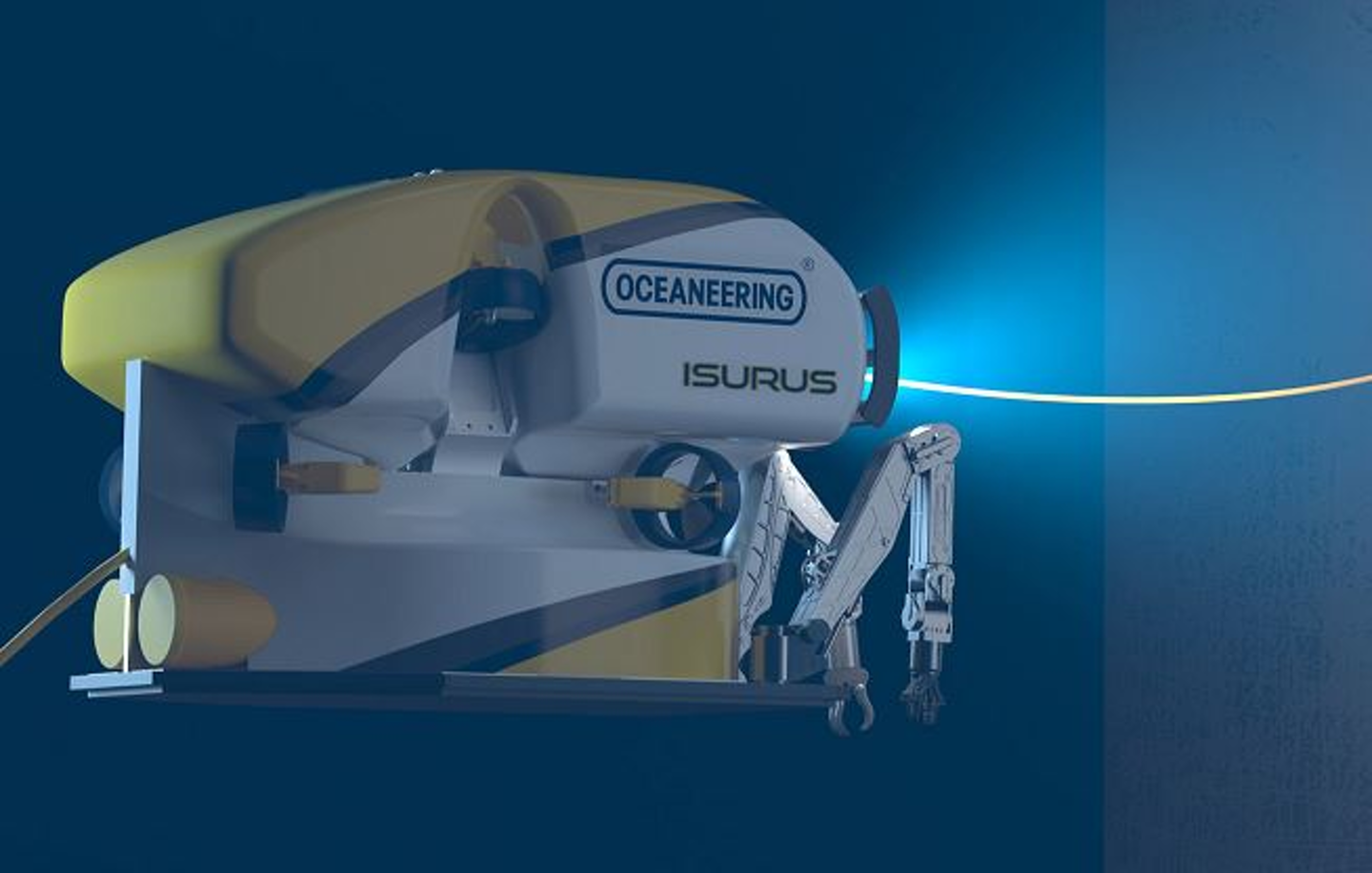Home › Forums › ROV › ROV Rookie Corner › change of career
- This topic has 8 replies, 7 voices, and was last updated 17 years, 7 months ago by
back6.
-
AuthorPosts
-
October 4, 2006 at 11:02 am #256
underthethumb
ParticipantI need some advice
My husband is currently a remote handling operator working for at UKAEA. He is doing remote handling operations on a fusion reactor but is not currently happy with his lot and seems to think there is something better to do but cannot get up the momentum to sort it out. So I have decided to step in and find out some info for him to see if I can spur him on before it drives both of us mad. 😉
Anyway, he has always worked in the engineering industry and has worked on Water Jet machines and done precision engineering work. Now he does various jobs at UKAEA which involve anything from fabrication to remote controlling equipment in pressurised and hazardous area’s . He sometimes has to be full suited with breathing apparatus in order to enter the vessel that he works in as it is filled with some sort of dangerous gases. Not sure which ones as I am sure I will think it is too dangerous.
I beleive that this type of job could be really good for him. He is into anything extreme surfing, kite boarding, snow boarding etc.
Does anyone have any advice about what qualifications etc he would need he does have some engineering qualification (I am not sure what) also trained in working in pressurised areas etc. Thanks.
October 4, 2006 at 1:14 pm #8483James McLauchlan
ParticipantHi there,
Your husband seems to have the kind of background that would enable him to fit in to the ROV industry.
He would need either Mehanical/Hydraulics training/experience or Electrical/Electronics training/Experience.
To work offshore he would also need:
1) A Survival Course (OPITO standard)
2) A Surface Medical (UKOAA standard)The best time for him to actually make the switch would be say… April/May as it will get quieter during the EU winter period.
That would also give him plenty fo time to get sorted with an Offshore Survival Course (OPITO standard) and a surface medical (UKOAA standard).If your husband ends up employed, as a result of an interview, then his new company would most likely pay for that. Sometimes though if a company sees how far you have gone towards that already, they will see that you are keen. It may make a difference.
Fugro (Aberdeen) are carrying out interviews in early Nov. I believe. You may want to give Human Resources a call and see if you can get your husband an interview.
Call them up.. it can’t do any harm. Mention that your husband has expressed an interest in ROV’s as a career.
Explain that you are his wife and that he’s busy at work for the UKAEA but you have just found out that Fugro may be hiring soon and thought you would inquire on your husbands behalf. If you are talking to another woman (at Fugro) they will probably be more understanding towards you than they can be to the 100’s of guys they deal with all the time.Website: http://www.fugro.com
Contact person: Helen McHugh
Telephone: +44 1224 257600
E-mail: H.Mchugh@fugro.comIn the meantime I would suggest that he gets a CV together and fires it off to a few of the other ROV companies.
It has been a busy year so far and will most likely be equally busy next year.
If you look in our Web Links section you will find plenty of links to other ROV operating company websites. From there you will be able to collect more contact information.
There are also links to ROV agencies that might be worth contacting.We had a Forum crash recently but have added a lot of info back in of late (well Gina has!), check out the other posts.. you may pick up some more pointers from there.
best regards
James McOctober 4, 2006 at 3:06 pm #8484temp
Participantunderthe thumb
As James says, not ideal time of year to be looking to get a start in the offshore ROV side of things, but always worth a try.
A combination of practical engineering experience with formal training and qualifications, plus proven remote handling equipment dexterity skills should both be a plus.
Additional multi-disciplined skills are useful to work towards if he can obtain these whilst waiting, such as some electrical/electronic knowledge if main core skills/quals are mechanical/hydraulic (and v.v.).
There is a company that uses remotely operated vehicles etc for onshore nuclear work, mainly plant decomissioning I think. They may be interested especially if he has e.g a RPS (Radiation Protection Supervisor) qualification and/or good knowledge of nuclear plant and operations, safety precautions etc – link below. It may even be a possible route into offshore ROV work at a later stage (as they also do offshore ROV work).
There are also companies that do ‘FMD’ (Flooded member detection) using radioactive sources and detection equipment fitted to ROV’s – not actually maintaining or operating the ROV directly but again may be a possible route in for offshore experience, although they would probably be looking for some electronics and computing experience.
e.g. Prosub or Tracerco
If not able to get taken on as ROV trainee in near future, it may be easier at a later time if have already gained some offshore industry engineering experience elsewhere outwith the ROV side – there are various offshore oil & gas industry service companies that take on mechanical technicians. These would be mainly in Aberdeen for onshore-based with occasional offshore trips, but home location not important if working solely offshore.
ROV offshore work can be quite a bit different from other regular onshore jobs, such as having to start at the bottom as a trainee again, working away from home several weeks at a time for up to half of each year, sometimes not ideal living/working conditions or locations, fluctuating work especially if contracting. It can be fairly well paid once experienced, plus several months total a year at home rather than your average 30 days annual leave. These things can be difficult if not done that sort of thing before i.e just used to working 9-5 Mon-Fri in UK only.
You also need to be a bit of a ‘self-starter’ (to use that annoying employer-speak) as it can sometimes be hard to get motivated when working away from home on 12 hour shifts 7 days a week for 4-6 weeks.
Also need to be flexible/adaptable, able to use initiative, get on with people ok, be prepared to go away at short notice etc.Good luck
tempOctober 4, 2006 at 3:39 pm #8485K2
ParticipantUnderthethumb
I’d disagree on the ‘time of year’ comments. The industry is manic at the moment and not just in the North Sea. ROVs are used worldwide in a variety of arenas and there’s an enormous shortage of personnel.
If your husband has good hydraulic, electronic or electrical training, certification & practical experience and can get on well with people PM me and I’ll give you contact details of a guy who pays £180 a day for trainees.
😉
October 12, 2006 at 9:05 pm #8486sparkydiver
ParticipantUnderthethumb
Hey man, I’m really keen on this trainee position, whats the guy’s email address?
I have a masters in offshore & ocean technology and need a foot in the door!!
😉
October 12, 2006 at 9:16 pm #8487underthethumb
ParticipantI think that I might have to send him to gain some decent qualifications. He has an NVQ in mechanical engineering and has worked on lathes, waterjet cuttting machines and now works as a remote handling technician on fusion reactors.
Does experience and willing to learn count for anything? 😕
October 13, 2006 at 1:25 am #8488K2
ParticipantSparkydiver/ Underthethumb
Do you have any technical ability/knowledge, i.e. electrical, hydraulic or electronic? 😕
Without these you will struggle in day rate work as you may be paid as a trainee (the agent will have the rest 👿 ) but there’s no training as such, only what learn yourself so you have to be very self motivated.
As you’d be on a dayrate you would be expected to perform as pilot/co-pilot/winch operator and be able to maintain and repair the equipment. If you can’t then a team is a man down which makes more work for the experienced guys and increases any risk involved during your time on deck.
I’d recommend going the salaried route with a company who provides training. Once you’ve the experience and knowledge then go for the big $$.
If these companies aren’t entertaining you then you need to ask them why, this way you’ll have an idea of your weaker areas that you need to focus on.
Good luck.
Underthethumb, you can’t take your wife offshore 😆
😉
October 13, 2006 at 2:16 am #8489Philip Pedlow
ParticipantHey there underthethumb
Experience and willingness to learn count for a lot. It sounds like your husband has been around the engineering business for while. When you say he has worked on lathes etc. do you mean he is a machinist or he has been repairing the gear. To be honest both are good things to know in this game.
The ROV game is not rocket science. If he is a personable guy and can bring something to the table as a member of the team then he should be just fine.
Get on the blower and start calling people. Rumic, UKPS, and all the other agencies have a Trainee day rate starting at around 180 quid so dont be shy.
Thats all for now
FiloOctober 13, 2006 at 3:02 am #8490back6
Participanthi UTT
good move on your part to give your hubby a boost, i am 45 and been around ships submarines and dockyards all my working life but i have just come back from my first ROV job. All I can say is it was the best move I have ever made career wise. The work is not too taxing for anyone with a good kind of electrical or engineering experience.Flying first time and trying to get some hours up on the stick is a bit of a struggle when the jobs are delicate and the supervisors are needed.The guys were great and helped answer my questions, did not mind me following them around like a lost sheep and looking over their shoulder to learn the tasks needed.
Working with nukes your hubby can bring experience and tips with safety to the job. A new pair of eyes.My mrs was very happy to see the pay check and most of all she has been wonderful and supportive of what I kind of felt was maybe a mid life crisis point career change. She has , and my girls also have said how much more relaxed and happy i am since leaving my ship yard supervisor job , lots of pressure etc to go back and be the apprentice.
my biggest worry was how i can keep my family happy and fed, bills paid and that held me back for about four years while I worked myself into the corner, seems i should have worried less and made the move a long time ago. Tell your hubby, relax , take a chance, dont be worried about the inevitable knock backs from busy ops managers,one will listen and say to themselves “this could be someone – lets see how it goes”
Go full on . If it does not work out there are other jobs and with a good supportive family behind you he will be fine. Good luck . -
AuthorPosts
- You must be logged in to reply to this topic.



